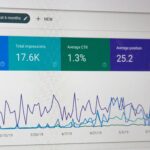In the age of data-driven decision-making, businesses have access to a treasure trove of insights that can shape strategies, optimize processes, and enhance customer experiences. When it comes to engagement and interaction, assessment quizzes have emerged as powerful tools that not only engage users but also provide a wealth of data that can fuel informed business decisions. By leveraging analytics and tracking mechanisms in assessment quizzes, businesses can gain deep customer insights that pave the way for success.
In this article, we’ll explore the significant role of analytics in assessment quizzes, highlighting how they drive customer insights and elevate your business strategies.
The Power of Assessment Quizzes
Assessment quizzes have transcended their traditional role in education and training to become essential components of online marketing, customer engagement, and lead generation. These interactive experiences captivate users’ attention, guide their decision-making, and offer valuable insights into their preferences, behaviors, and needs.
Imagine a skincare brand launching a “Personalized Skincare Routine Quiz.” By answering questions about their skin type, concerns, and preferences, users receive tailored skincare recommendations. This not only engages users but also provides the brand with invaluable insights into customers’ specific skin concerns and desired products.
Analytics: The Cornerstone of Insights
Analytics in assessment quizzes offer a multidimensional view of user interactions, allowing businesses to make informed decisions based on real-time data. The data collected through quizzes is a goldmine of information that spans user engagement, preferences, pain points, and conversion patterns. Leveraging this data illuminates customer behavior and guides strategic moves.
- User Engagement: Analytics reveal how users interact with the quiz – where they drop off, which questions they find challenging, and how long they spend on each section. This data highlights opportunities to optimize the user experience and maximize engagement.
- Personalization Opportunities: Tracking user responses enables businesses to understand individual preferences. This knowledge can be used to craft personalized recommendations, offers, and content that resonate with each user.
- Content Effectiveness: Analytics shed light on the effectiveness of different quiz elements, such as question types, images, and explanations. By analyzing user responses, businesses can fine-tune content for better results.
- Segmentation and Targeting: Data from assessment quizzes allows for effective audience segmentation. Businesses can categorize users based on their quiz responses, enabling targeted marketing campaigns that address specific needs and preferences.
- Conversion Insights: Analytics reveal conversion rates at various stages of the quiz journey. This data identifies bottlenecks and conversion barriers, facilitating strategies to enhance the conversion process.
Implementing Analytics in Assessment Quizzes
To harness the potential of analytics, businesses must implement tracking mechanisms strategically within their assessment quizzes.
- Choosing the Right Metrics: Determine the key metrics that align with your objectives. Whether it’s engagement rates, completion rates, or conversion rates, select metrics that provide meaningful insights.
- User Behavior Tracking: Employ tools that track user behavior within the quiz. This includes tracking clicks, time spent on questions, and the path users take through the quiz.
- Event Tracking: Set up event tracking to monitor specific actions users take during and after completing the quiz. This could include clicks on recommended products or shares of quiz results on social media.
- Conversion Tracking: If the quiz has a conversion goal (such as lead generation or product recommendations), implement conversion tracking to measure the effectiveness of the quiz in achieving that goal.
- Data Visualization Tools: Utilize data visualization tools to transform raw data into visual representations that are easy to understand and analyze. Graphs, charts, and dashboards provide insights at a glance.
Interpreting Insights for Action
Collecting data is just the first step. The true value lies in interpreting insights and using them to drive informed decisions and strategies.
- User Experience Optimization: Insights into user behavior highlight areas where users might be dropping off or facing challenges. Adjust the quiz flow, wording, or design to enhance the user experience.
- Personalization Strategies: Tailor marketing efforts based on the data collected. For instance, if users are gravitating toward a specific quiz result, use that insight to create targeted content or product offerings.
- Content Refinement: Analyze responses to specific questions to identify trends. If a particular question receives consistently incorrect answers, consider revising the question or providing more explanatory content.
- Conversion Rate Enhancement: If conversion rates are lower than desired, use insights to identify where users are dropping out and implement strategies to address those pain points.
- Iterative Approach: Treat analytics as an ongoing process. Regularly review data, make adjustments, and test new strategies. The iterative approach allows for continuous improvement.
Case Studies: Success Stories
Several businesses have reaped the rewards of implementing analytics in their assessment quizzes.
E-learning Platform: An online learning platform introduced analytics to its language assessment quizzes. Insights into user performance and learning patterns guided content development, resulting in more effective language courses.
E-commerce Retailer: A fashion retailer integrated analytics into its “Style Quiz.” By tracking user preferences and interactions, the retailer optimized product recommendations, leading to increased sales.
Healthcare Service Provider: A telehealth service used analytics in its “Health Assessment Quiz” to better understand patients’ concerns. This information allowed the provider to offer specialized medical advice and services.
In the era of data-driven business strategies, assessment quizzes shine as valuable assets that offer engagement, personalization, and customer insights. By harnessing the power of analytics and tracking mechanisms within these quizzes, businesses gain a deep understanding of customer behavior, preferences, and pain points.
This knowledge forms the foundation for strategic decisions that optimize user experiences, refine marketing efforts, and enhance conversion rates. As you embark on the journey of implementing assessment quizzes enriched with analytics, remember that the insights gained aren’t just numbers; they’re windows into your customers’ minds, guiding your business toward success.





